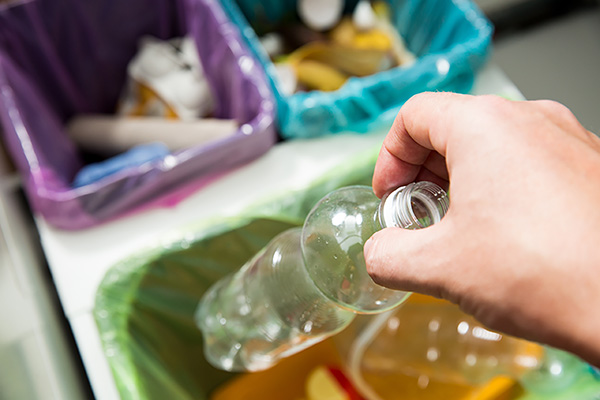You don’t have to have state-of-the-art systems or expensive custom eco-designs to have an environmentally friendly home. In fact, some of the most significant steps you can take to make your home more sustainable won’t cost a dime, and others are surprisingly affordable. Here are five ways that you can help your home help the environment:

Regularly Recycle
Many of us recycle some things, but either don’t recycle all the items we could or don’t do it consistently. The key to recycling success is to do it regularly. Commit to making recycling a practice at your home by making a plan. Contact your community’s recycling resource for specific guidance about what and how to recycle in your area. Then, set up bins in an easily accessible area in your home and get started. It may be helpful to hang written instructions near the bins until everyone in your household gets the hang of it. Set reminders on your phone for pick-up or drop-off times, so you don’t forget. Once you get in the habit, recycling will be as easy and routine as taking out the garbage.
RELATED: 8 Things You Can Repurpose At Home
Reuse
Before you discard an item, ask yourself how you could repurpose it. If you can’t think of a way to reuse the item, donate it for someone else to use. Before you go shopping, look through your home’s closets, drawers, and storage spaces to see if you already have a similar item or a good substitute. Instead of throwing away old furniture and accessories, think about how you could refurbish the pieces for your own home or pass them along to another household. Think about disposable items that you could reuse with very little effort, including zip lock bags, plastic shopping bags, paper bags, and storage containers. Many disposable items make great craft supplies for kids.
Take Advantage of Technology
Today’s technology can help your home conserve energy, which can help the environment and, in many cases, help lower your utility bills. For example, smart thermostats let you set heating and cooling temperatures around your household’s occupancy, saving on energy usage while keeping rooms more comfortable. On-demand water heaters supply hot water when you need it instead of using energy to hold it in a tank indefinitely. Low-flow faucets distribute less water for showers, baths, and sinks. Taking advantage of these and other technological advances won’t cost a lot but could pay dividends for your budget and carbon footprint.
RELATED: 7 Eco-Friendly Home Features
Landscape
Did you know that your lawn and landscape can help your home conserve energy? Windscreens, watering monitoring, and vegetable gardens can help you move toward energy efficiency and sustainability.
Enlist Your Household
Make greener living a household effort. Share tasks and schedules, ask everyone to contribute ideas and time to the effort. Even small children can help separate recyclables, help tend gardens, and learn to turn off the water while they brush their teeth. Celebrate your environmental accomplishments with a special dinner or family movie night to keep enthusiasm high.
For more information about greener living, visit epa.gov.